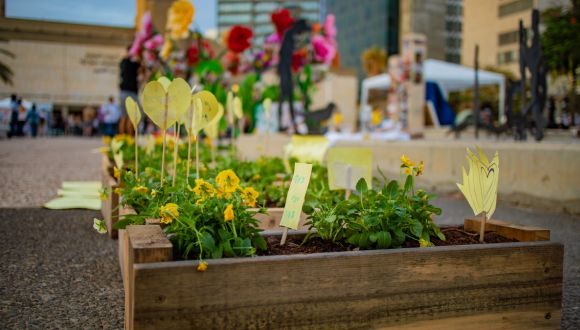When war broke out on October 7th, 6,000 Tel Aviv University students were drafted to reserve duty. With the school year postponed, students left back home wanted to do their part for the country however they could. To this end, 12 driven TAU students and faculty took it upon themselves to create a large number of different volunteering programs and recruited over 1,000 University members to help soldiers, survivors, children, and more.
Initiatives include helping patients at hospitals, making food for soldiers on the front lines, and bringing buses of people down to the border of Gaza to harvest fields and keep factories running at kibbutzim that were evacuated. Agriculture and industry are essential to the economies of these kibbutzim and the country, but their proximities to the fighting make them vulnerable; TAU volunteers continue to show bravery by signing up in droves.

A TAU student volunteers at a factory in southern Israel.
Read below in detail about some of the unique ways TAU is using its resources for the good of the country.
Sapir College Initiative
Sapir College in the south of Israel, like most of the communities in the area, was evacuated and its students scattered around the country. Its administration needed to check up on each of its 8,000 students, but had nowhere central to work from and not nearly enough people for the job. To lend a hand, TAU hosted Sapir’s administration on campus and 60 people volunteered to help call each and every student.
Childcare and Education Initiative

TAU’s Youth University Science Team traveled to evacuation centers to do educational science experiments with evacuated kids. (Photo: TAU)
Hundreds of thousands have been evacuated from the north and south of Israel due to the attacks and heavy rocket fire. This means children are away from school and their usual routines, making childcare particularly difficult. 64 TAU volunteers have come to help take care of children and make them feel at ease, including students from the
Constantiner School of Education who are teaching for free at makeshift schools where the families are staying.
“A lot of the kids are scared or confused. They ask a lot of questions about when they can go home and tell me all about what they experienced.”
Says Orr Hannes, a second-year Hebrew Language BA student who is getting her teaching license through
a special TAU program, “a lot of the kids are scared or confused. They ask a lot of questions about when they can go home and tell me all about what they experienced. I’m teaching kids from Ashkelon where they had tons of rockets, so they’re jumpy every time there’s a siren.” She says she is really glad she got the chance to volunteer doing something she’s passionate about and that gives her professional experience. She also says the atmosphere isn’t all bad: “the children still act like children, and most of the time they are happy to see me and talk to me.”
“Fables in a Suitcase” Theatre Initiative

TAU Theatre students perform for children evacuated from their homes after October 7th. (Photo: Belle Bochlin)
Another important way Tel Aviv University students helped ease children’s minds was through interactive theatre. The TAU
Katz Faculty of the Arts and the
Buchmann-Mehta School of Music joined forces to create plays of four fairy tales in only two days. Arts, theatre, and music students built and painted portable set pieces, made costumes, wrote scripts, directed the shows, played music, and coordinated performances. They performed the series entitled “Fables in a Suitcase” for survivors in hotels all over the country.
“This project helped me see how important theatre really is.”
Says Belle Bochlin, a third-year Community Theatre student who helped produce the plays, “it’s kind of therapeutic. We were able to give the children a bit of escapism from the war, as well as an outlet for some of their strong emotions. They cried, they laughed, they yelled at the actors; some of them were happy to see us, while others wanted the chance to express their anger.” Students worked very hard, coordinating and performing at multiple hotels a day with different groups of children.
Bochlin says the project helped her feel confident that her chosen career is a meaningful one. “I was really scared and confused because of the war, but this project helped me see how important theatre really is. Seeing how much we were able to help these children made me feel a little better, and it’s all thanks to TAU.”
Legal Clinic Initiative
At the outset of the war, much of the country shut down and left many people out of work and without some of the services they rely on. To help them stay on their feet, members of the TAU
Buchmann Faculty of Law initiated a network of over 150 volunteer law students, lawyers and interns both within the TAU bubble and around the country. They set up an online form and immediately started getting requests for help with things like accessing National Insurance funds, navigating the fallout of injury, and dealing with rental contracts and housing. So far they have worked on almost 300 cases.

A legal volunteer works with a resident of Ofakim on a legal issue.
In the war-ravaged town of Ofakim, volunteers went door-to-door helping out and eventually set up a center in a shelter where residents could come ask for help even as rockets rained down. For example, tells volunteer and TAU
Legal Clinic for Holocaust Survivors instructor Yael Havassy-Aharoni, “there was one woman, an Ethiopian mother who lost her oldest son in the attacks. Her younger son has Down Syndrome, and the oldest had been the one helping her and taking care of him. It wasn’t easy to care for him on her own, especially as he was in distress missing his brother. However, when special education classes came back in session, the town wasn’t providing transportation so she still couldn’t send him to school. We brought the problem to the mayor’s office and after a few days they got the buses back up and running.”
On a larger scale, the volunteers identified common issues and have been going regularly to the Knesset to try to promote policies that will mitigate these problems.
TAU Dental School Initiatives
The
Goldschleger School of Dental Medicine contributed to both the war and the community in a large number of ways.
MEDICAL SUPPLIES: As a medical school, the Dental School were well-equipped to respond to the shortage of medicine and medical tools needed for the huge influx of soldiers. “At the beginning, a lot of our students were drafted. They started calling the school and saying they were missing a lot, not only dental instruments but all supplies,” says School Head Prof. Rachel Sarig. “So we started collecting what they needed and sending them to the front lines.

Soldiers from the IDF’s Search and Rescue Unit were grateful to receive medicine from TAU’s dental student volunteers.
COMMUNITY OUTREACH: With so many people unable to visit their regular dentists, as well as many with oral injuries from the attacks, the School opened a free dental clinic providing first aid treatment, and eventually general treatments, to whoever needed it. They treat many people every day.
Hoping to widen their impact, dental students also traveled to various evacuated communities giving presentations to remind people not to neglect their teeth. “Dental concerns aren’t usually on people’s minds,” says Prof. Sarig, “but they are an essential for overall health.” Additionally, the School worked with fundraising organizations as well as major dental companies Oral B and Colgate to fund their clinic and to donate 12,000 toothbrushes and toothpaste to evacuees.
“Our students were on the front lines of volunteering in all aspects. About 20% of our students were drafted, but those who were left at home also wanted to contribute everything they could.”
AI DENTAL RECOGNITION SOFTWARE: In a slightly different vein, Prof. Sarig and her colleagues are working on a new AI program that may help identify those lost on the day of the attack. Many bodies, sadly, have yet to be identified; this software will act like facial recognition for teeth, scanning a database of dental records against forensic X-rays.
“Our students were on the front lines of volunteering in all aspects. About 20% of our students were drafted, but those who were left at home also wanted to contribute everything they could.”



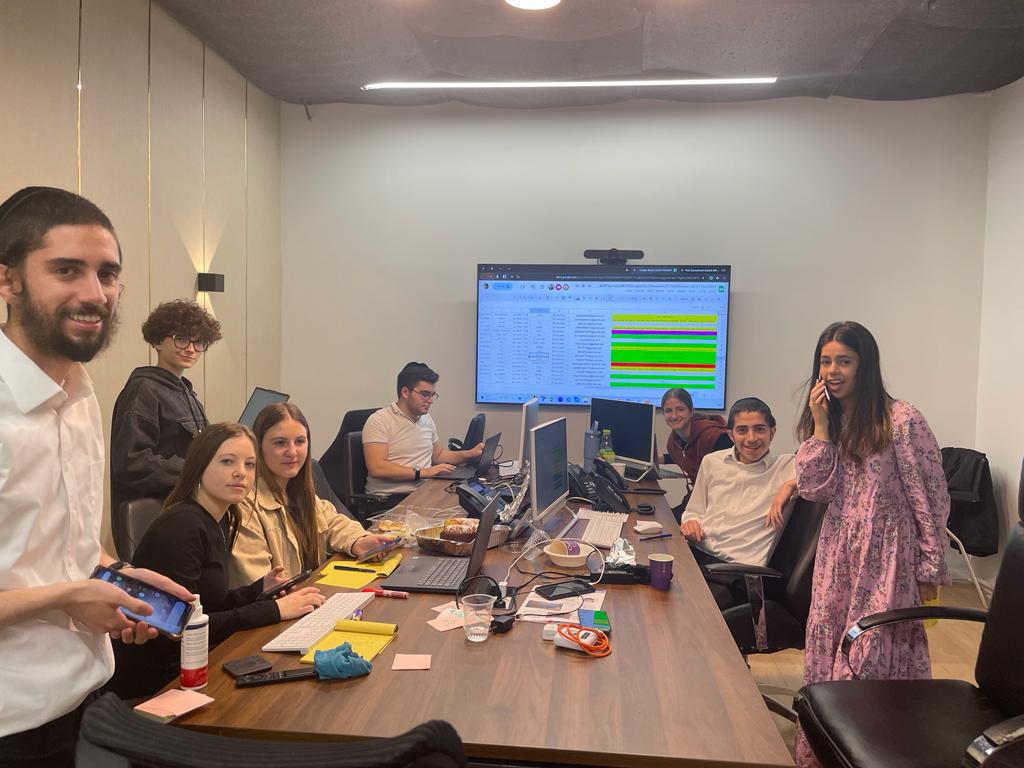

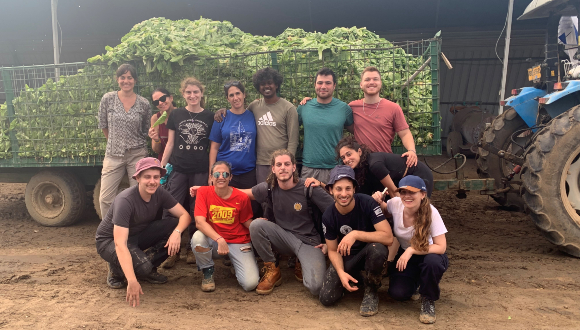

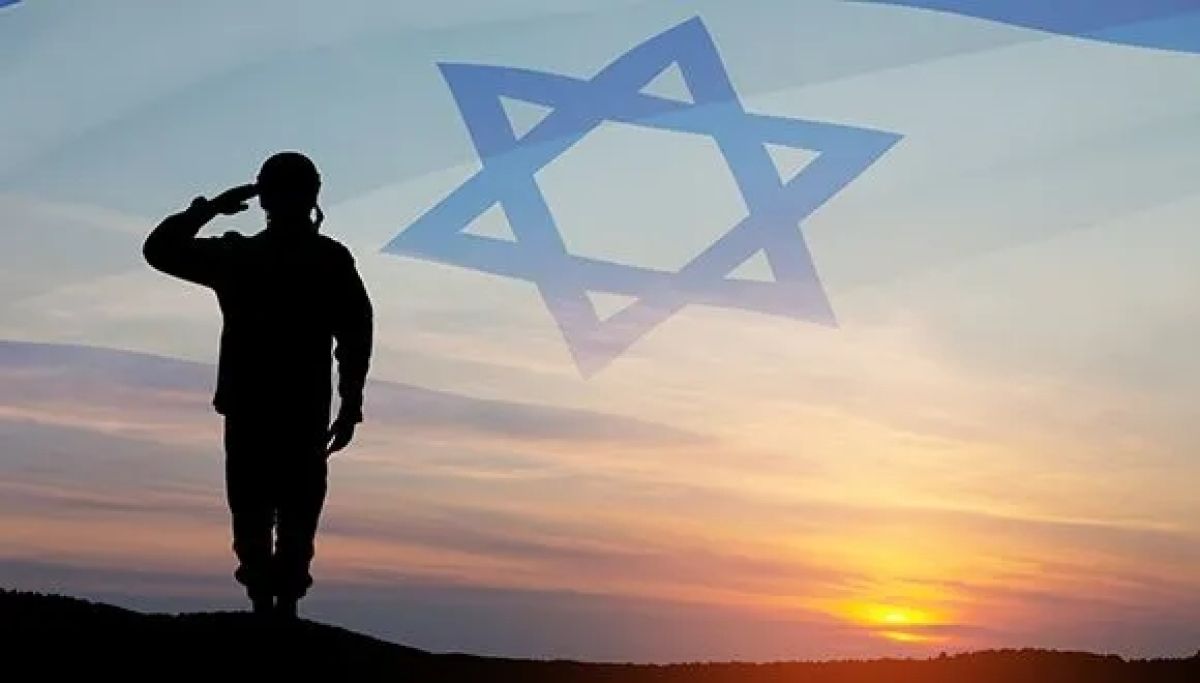

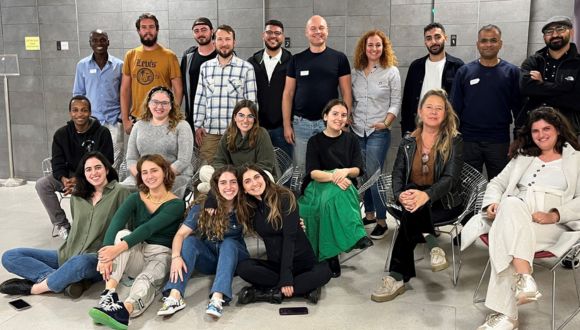 Sofaer Global MBA students with Prof. Goren, the head of the program
Some international students are not currently in Israel and several Israeli students have been recruited to their reserve military service. In such cases, the teaching is handled in a hybrid mode – in person in classes and to a Zoom audience at the same time, or through Zoom only. All classes are recorded, and all materials are uploaded to the TAU site to support the learning process.
“We are glad to share that all planned classes are taking place, 75% of the students are joining the classes and we are on the right track,” comments Prof. Eviatar Matania, Head of the
Sofaer Global MBA students with Prof. Goren, the head of the program
Some international students are not currently in Israel and several Israeli students have been recruited to their reserve military service. In such cases, the teaching is handled in a hybrid mode – in person in classes and to a Zoom audience at the same time, or through Zoom only. All classes are recorded, and all materials are uploaded to the TAU site to support the learning process.
“We are glad to share that all planned classes are taking place, 75% of the students are joining the classes and we are on the right track,” comments Prof. Eviatar Matania, Head of the 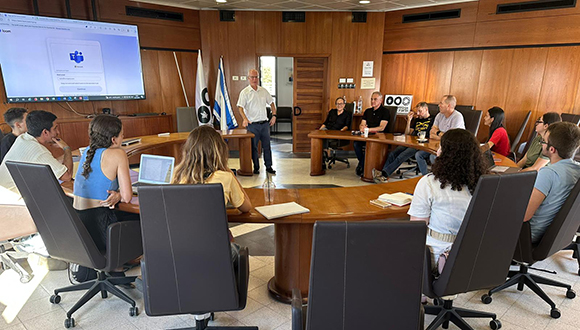 A meeting of the student task force
One of the most prominent student initiatives is a
A meeting of the student task force
One of the most prominent student initiatives is a 
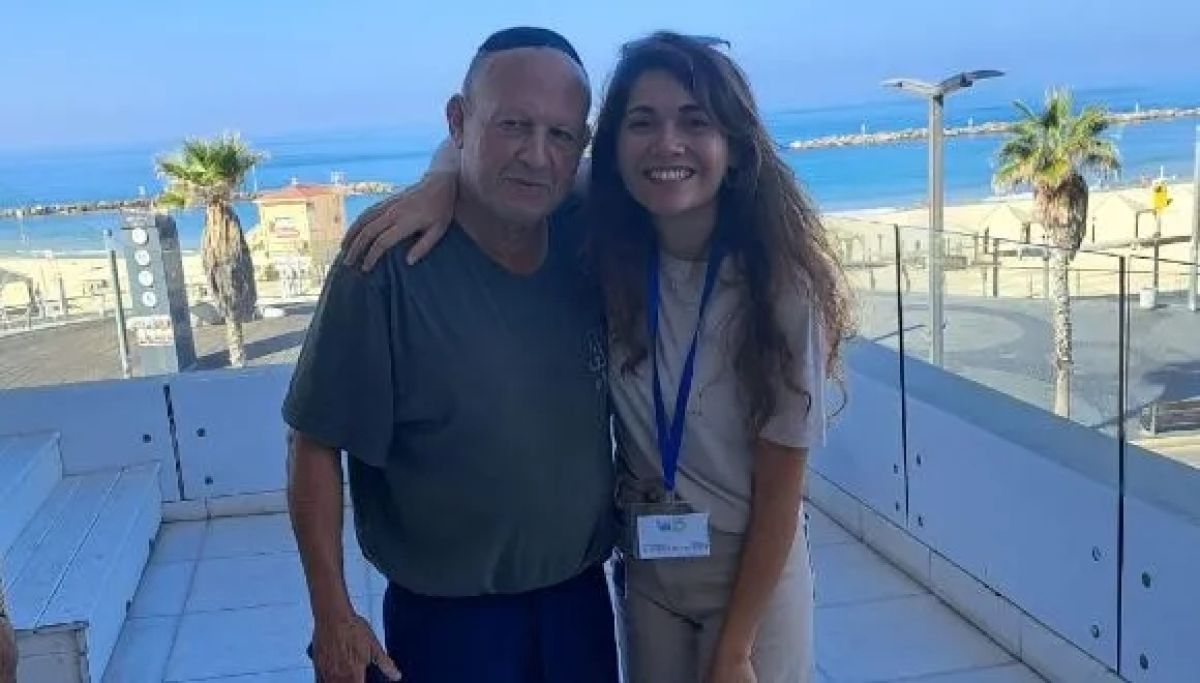
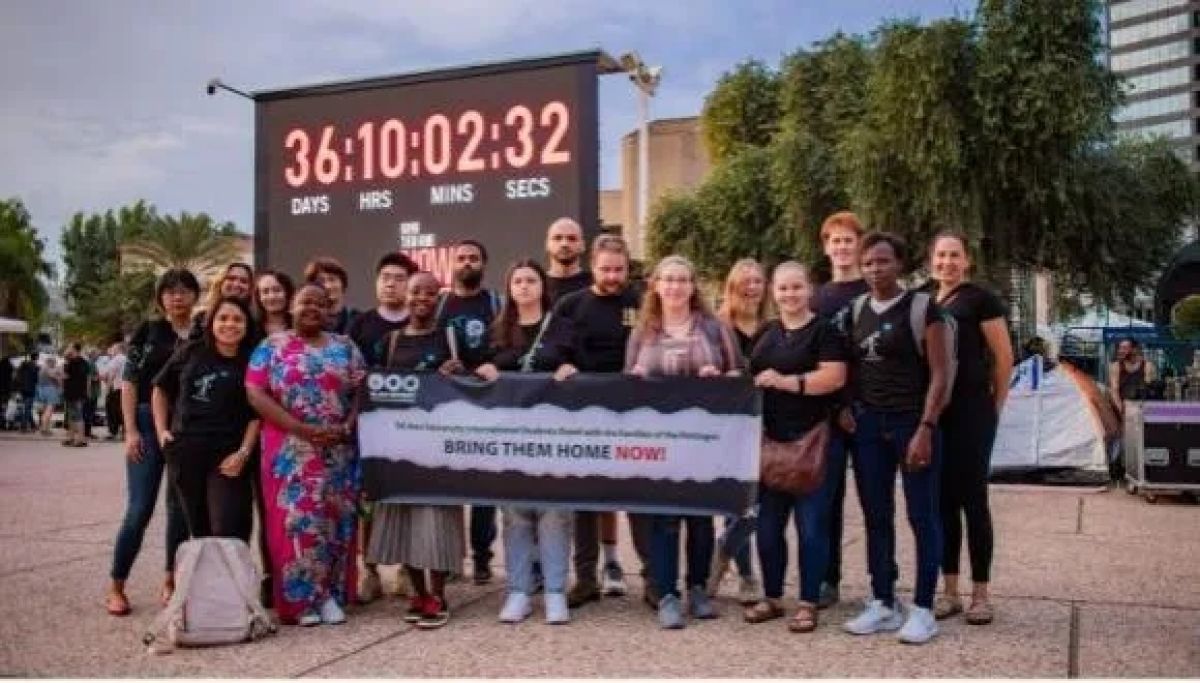
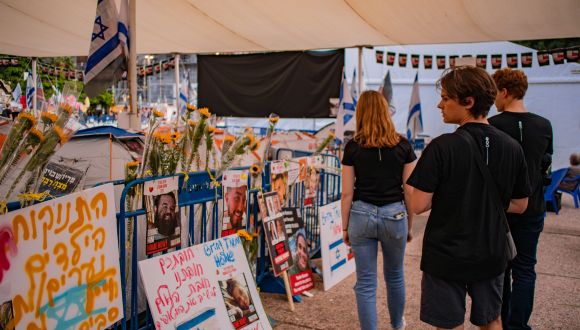 The Tel Aviv Museum plaza has effectively become the headquarters of the hostages’ families and is now dubbed the Hostage Square.
Some of the people at the plaza shared their harrowing stories with the students who came to show their solidarity and support for the kidnapped and their loved ones.
The Tel Aviv Museum plaza has effectively become the headquarters of the hostages’ families and is now dubbed the Hostage Square.
Some of the people at the plaza shared their harrowing stories with the students who came to show their solidarity and support for the kidnapped and their loved ones.
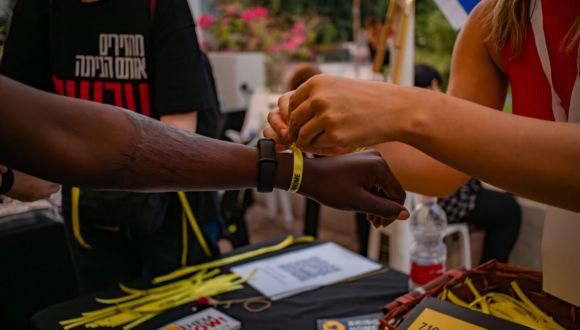 Itay Svirsky, originally from kibbutz Beeri, was visiting his parents at the kibbutz over the Sukkot holidays, as is customary in Israel. On Saturday morning, Itay was with his mother Orit in their safe room. Orit and her husband, Itay’s father, were murdered.
Itay was initially declared missing, but a couple of days later, the family received a notification from the IDF that he had been taken to Gaza.
Itay Svirsky, originally from kibbutz Beeri, was visiting his parents at the kibbutz over the Sukkot holidays, as is customary in Israel. On Saturday morning, Itay was with his mother Orit in their safe room. Orit and her husband, Itay’s father, were murdered.
Itay was initially declared missing, but a couple of days later, the family received a notification from the IDF that he had been taken to Gaza.
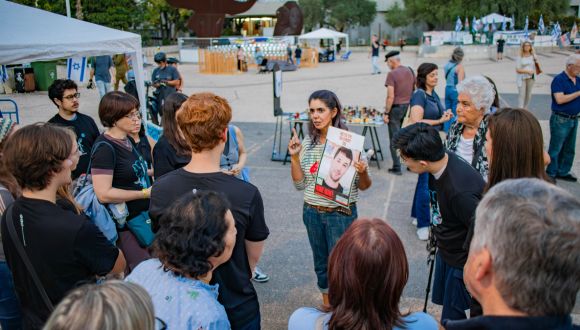 “We don’t know anything about his physical condition, but in the past two years, Itay has learned many tools that can help him treat himself and others.
“We don’t know anything about his physical condition, but in the past two years, Itay has learned many tools that can help him treat himself and others.
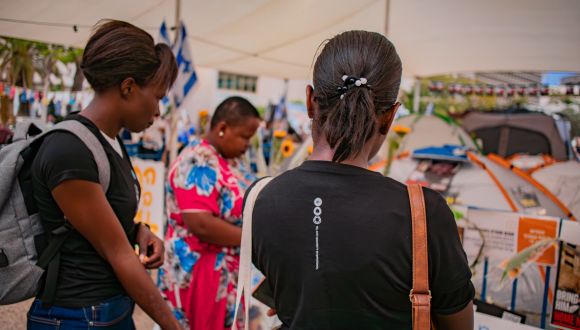 The neighbor of Adina Moshe, a 72-year-old hostage from Nir Oz, related the losses that their kibbutz had suffered, with about 70 people kidnapped and 30 more killed out of the population of 400.
“That’s a quarter of our population gone now. We still have no news and we hear nothing about the kidnapped. Terrorists dragged Adina through the window of the safe room after killing her husband. They put her on a motorcycle between themselves and took her to Gaza.
We don’t know what her condition is – she is not so healthy, she has a heart problem, and we don’t know if she’s getting any medicine or food, or if she is sleeping ok.
The neighbor of Adina Moshe, a 72-year-old hostage from Nir Oz, related the losses that their kibbutz had suffered, with about 70 people kidnapped and 30 more killed out of the population of 400.
“That’s a quarter of our population gone now. We still have no news and we hear nothing about the kidnapped. Terrorists dragged Adina through the window of the safe room after killing her husband. They put her on a motorcycle between themselves and took her to Gaza.
We don’t know what her condition is – she is not so healthy, she has a heart problem, and we don’t know if she’s getting any medicine or food, or if she is sleeping ok.
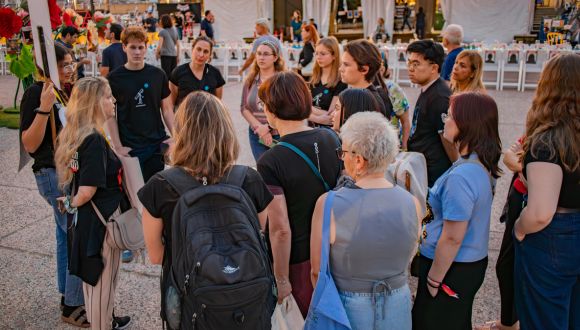 It was a moving experience for the students, and some stayed at the plaza until late evening to absorb it all and to join the relatives in their prayers and talks.
It was a moving experience for the students, and some stayed at the plaza until late evening to absorb it all and to join the relatives in their prayers and talks.
